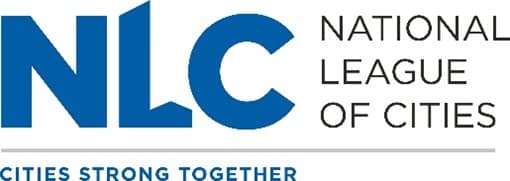Published on:
The State of Washington was well represented at the second meeting of the Housing Supply Accelerator steering committee when members met in Tacoma in July. Described as a solutions-oriented campaign, the effort is a joint undertaking of the National League of Cities (NLC) and American Planning Association (APA) to ease the country’s housing shortage, estimated at four million units.
Tacoma Mayor and NLC President Victoria Woodards co-chairs the campaign, which is focused on three areas: zoning and regulatory reform; construction and development; and finance. Redmond Mayor Angela Birney serves on the steering committee.
Three local projects were highlighted during the meeting, which also included representatives’ program partners, federal agencies, and national and regional organizations: The Southard, The Together Center, and The Hilltop.
- Housing Hilltop, a 231-unit affordable housing project of the Tacoma Housing Authority broke ground in January. It was showcased to underscore the significance of leveraging corporate partnerships. THA collaborated with JP Chase Bank, RBC Capital Markets, and Amazon Housing Equity Fund.
- The Together Center in Redmond “harmonizes social services and affordable housing” in close proximity to transit. It houses 20 diverse nonprofit human services providers and leveraged non-profit owned land with investments from the City, nonprofit and for-profit partners, plus state and federal entities.
- The Southard, located in Tukwila, is an environmentally sustainable neighborhood developed by the Homestead Community Land Trust. It features three- and four-bedroom cottage style homes for modest-income households.
Stephanie Onuaja, a program manager for Housing and Community Development at the National League of Cities, identified three key takeaways from the Tacoma meeting: 1) providing local leaders with resources to better understand housing development finance; 2) raising awareness of the significance of forging public-private partnerships; and 3) identifying federal grants and resources local governments can tap to assist with addressing local housing challenges.
In a blog summarizing the proceedings, Onuaja noted several topics for further exploration were identified, including community land trusts and land banks.
The Housing Supply Accelerator’s goal is to develop model practices, ordinances, and resources “to accelerate and incentivize local approaches to land use, housing development and preservation.” Local governments, community planners, builders, financial institutions, housing policy associations, and state and federal partners are involved in the endeavor.
In launching the Accelerator, NLC and APA representatives cited four factors that led to the partnership:
- Housing stability is a prerequisite for economic mobility, job security, and health and well-being.
- The affordable housing crisis harms every community.
- Every level of government is being pressured to act.
- Local governments and leaders are an essential part of the solution.
Angela Brooks, steering committee co-chair and director of the Corporation for Supportive Housing, believes the campaign will speed the adoption of policies that will reform zoning and increase housing choices. “Boosting the supply, availability, and diversity of housing options is essential to expanding opportunity and affordability for all. As communities across the country are confronting an expanding housing crisis, the need for reform has never been greater. This crisis threatens our economy, limits access to opportunity, reinforces long-standing inequities, and undermines efforts to create more sustainable places,” she said.


APA is an independent, not-for-profit educational organization whose 40,000 members seek to advancet he profession of planning.
The National League of Cities, with more than 2,000 members, is an advocacy organization that represents the country’s 19,000-plus cities, towns, and villages along with 49 state municipal leagues.